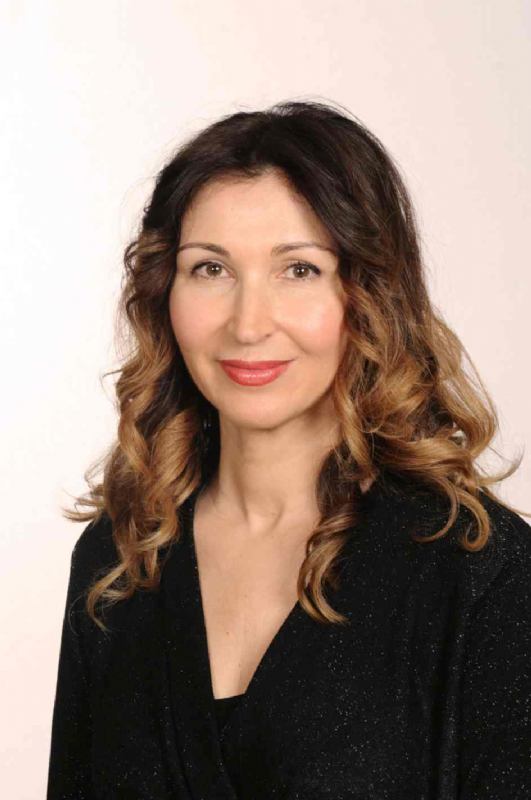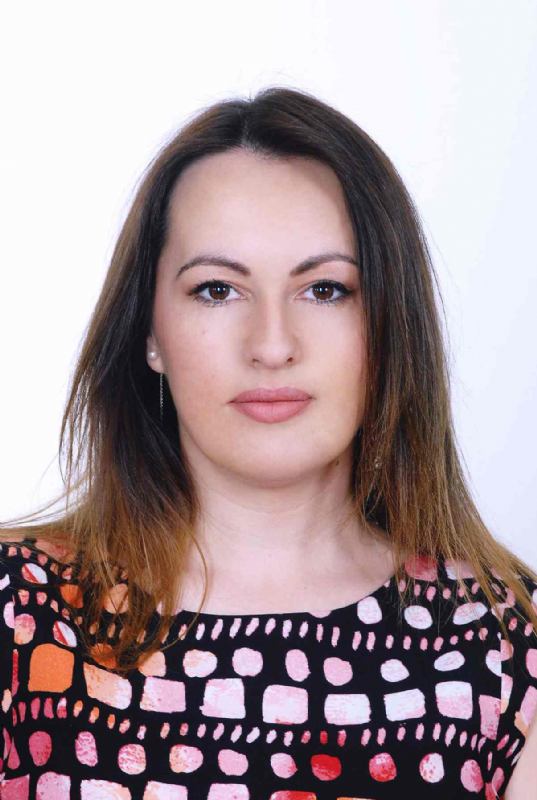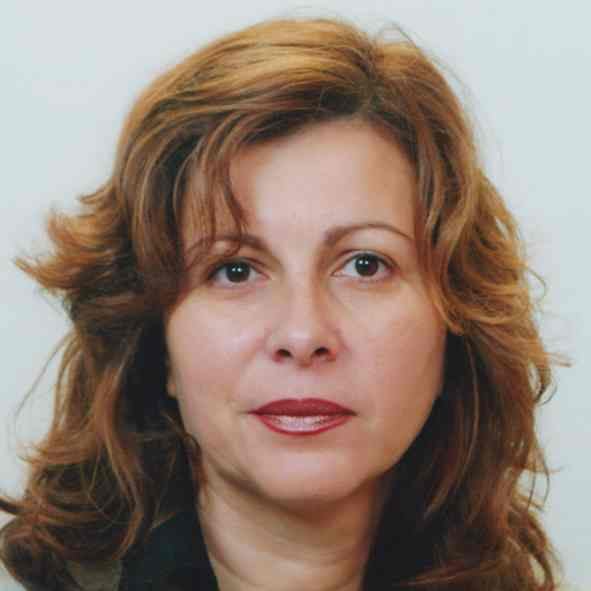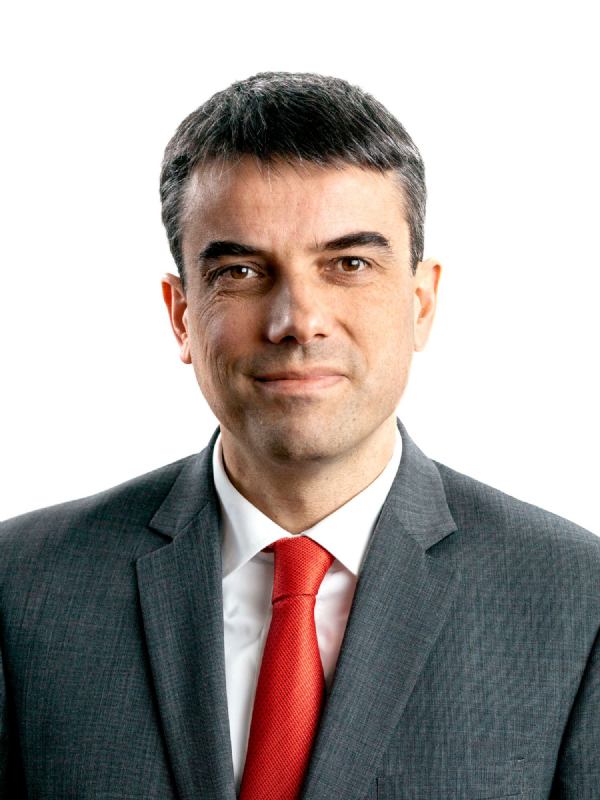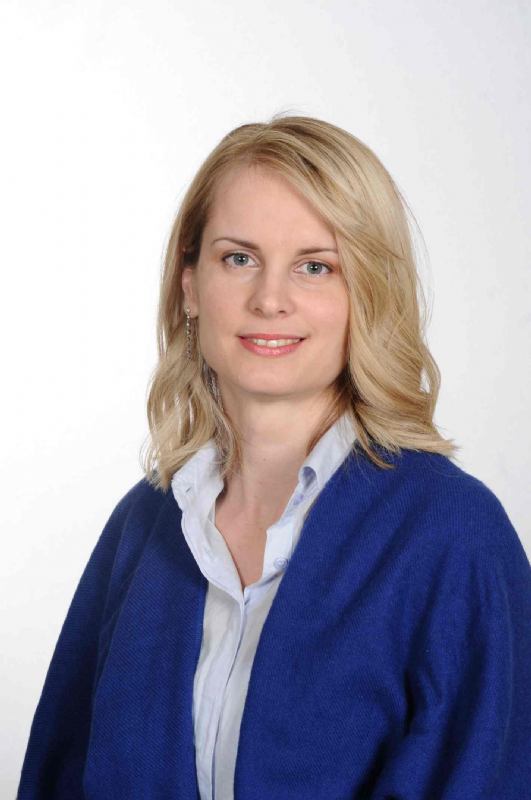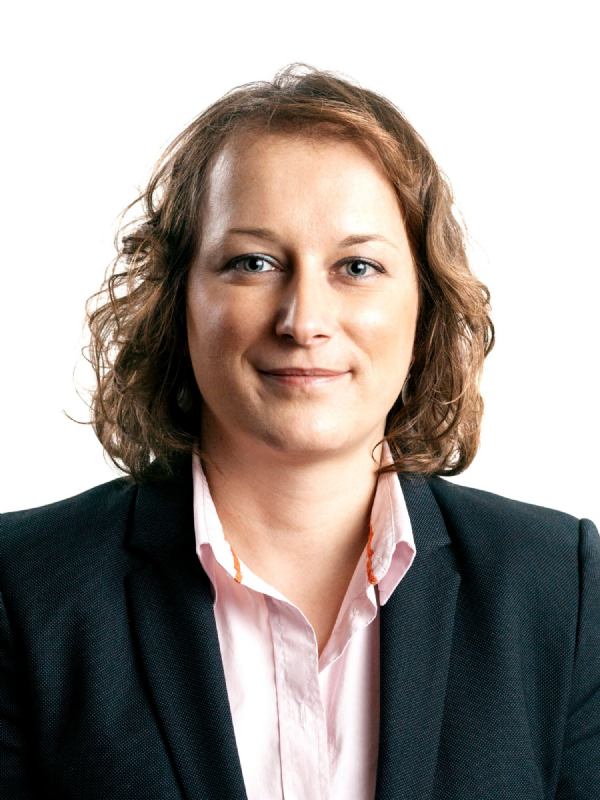PhD study Economics and business economics - track Economics
OBLIGATIONS OF DOCTORAL CANDIDATES:
1. Attend and sit exams from 3 mandatory and 3 elective subjects (30 ECTS)
2. Write and defend a doctoral dissertation proposal (15 ECTS),
3. Write and defend a representation of the results of the doctoral dissertation research,
4. Write and defend a doctoral dissertation (75 ECTS);
5. Spend at least 3 months at a foreign university or a scientific institution (20 ECTS),
OR
Participate in an international scientific or scientific-technical project (internationally financed project or project carried out entirely or mainly by foreign scientists), where having an international scientific paper published in the SSCI, SCI or CC database will serve as proof of attendance (20 ECTS),
OR
Participate in 2 scientific workshops carried out by foreign lecturers at the Faculty of Economics and Business of the University of Rijeka, and in 2 scientific colloquia and a doctoral conference (15 ECTS), as well as additional activities defined in Article 16, Paragraph 8 of the Regulation on Postgraduate University Course of Study (Doctoral Programme) in Economics and Business Economics at the Faculty of Economics and Business of University in Rijeka (5 ECTS),
6. Write and publish a scientific article on a topic from the field of social sciences in an internationally recognized scientific journal in line with the applicable criteria of the National Council for Science, i.e. mostly based on the Regulation on Appointment to Academic Ranks, pursuant to Article 16, Paragraph 9 of the Regulation on Postgraduate University Course of Study (Doctoral Programme) in Economics and Business Economics at the Faculty of Economics and Business of University in Rijeka (no less than 10, no more than 40 ECTS),
7. Present a scientific paper at an international scientific meeting, pursuant to Article 16, Paragraph 9 of the Regulation on Postgraduate University Course of Study (Doctoral Programme) in Economics and Business Economics at the Faculty of Economics of University in Rijeka (no less than 5, no more than 10 ECTS),
OBLIGATIONS OF DOCTORAL CANDIDATES WHO HAVE COMPLETED A POSTGRADUATE SPECIALIST COURSE OF STUDY OR THE FORMER POSTGRADUATE COURSE OF STUDY GRANTING THE TITLE OF MAGISTAR SCIENTIAE (BEFORE THE IMPLEMENTATION OF THE BOLOGNA PROCESS IN CROATIA):
1. Write and defend a doctoral dissertation proposal (15 ECTS),
2. Write and defend a representation of the results of the doctoral dissertation research,
3. Write and defend a doctoral dissertation (75 ECTS),
4. Spend at least 3 months at a foreign university or a scientific institution (20 ECTS),
OR
Participate in an international scientific or scientific-technical project (internationally financed project or project carried out entirely or mainly by foreign scientists), where having an international scientific paper published in the SSCI, SCI or CC database will serve as proof of attendance (20 ECTS),
OR
Participate in 2 scientific workshops carried out by foreign lecturers at the Faculty of Economics and Business of the University of Rijeka, and in 2 scientific colloquia and a doctoral conference (15 ECTS), as well as additional activities defined in Article 16, paragraph 8 of the Regulation on Postgraduate University Course of Study (Doctoral Programme) in Economics and Business Economics at the Faculty of Economics and Business of University in Rijeka (5 ECTS),
5. Write and publish a scientific article on a topic from the field of social sciences in an internationally recognized scientific journal in line with the applicable criteria of the National Council for Science, i.e. mostly based on the Regulation on Appointment to Academic Ranks, pursuant to Article 16, Paragraph 9 of the Regulation on Postgraduate University Course of Study (Doctoral Programme) in Economics and Business Economics at the Faculty of Economics and Business of University in Rijeka (10 ECTS),
6. Present a scientific paper at an international scientific meeting, pursuant to Article 16, Paragraph 9 of the Regulation on Postgraduate University Course of Study (Doctoral Programme) in Economics and Business Economics at the Faculty of Economics and Business of University of Rijeka (5 ECTS).
|
Obvezni kolegiji:
|
ECTS
|
Predavanja
|
Seminari
|
Vježbe
|
Vrsta
|
| Micro and macroeconomic theory and policy |
4
|
8
|
8
|
0
|
Obvezan
|
|
Microeconomics:
1. Selected topics in the field of microeconomic theories on consumer and producer behaviour (traditional and modern, static and dynamic), as well as their implication on efficient allocation of scarce resources and social welfare; 2. Selected topics in the field of microeconomic policy aimed at different agents, sectors, industries and markets and their imbalances and corrective mechanisms, as well as topics on economic interactions between business agents and consumers and incentives/penalties for their behaviour in order to achieve certain economic and social goals; 3. Selected topics in the field of applied microeconomics related to management, finance, accounting, public sector, information system, technology, ecology, social policy, etc. Macroeconomics: 1. Critical overview of the macroeconomic paradigms: from neoclassical, neokeynesian to new classical economics and post-keynesian economics; 2. Selected topics in the field of economic growth and long term analysis: from exogenous growth theory to new theories of growth; 3. Fiscal and monetary policy: effects, scope and limitations – short vs. medium run; 4. Macroeconomic policy of the small open economy with flexible and fixed exchange rate: critics and extensions of Mundell-Fleming Model.
Prof. dr. sc.
Ljerka Cerović
Kabinet: 56/III E-mail: ljerka.cerovic@efri.uniri.hr Telefon: (051) 355 147
Prof. dr. sc.
Nela Vlahinić
Kabinet: 59/III E-mail: nela.vlahinic@efri.uniri.hr Telefon: (051) 355 166
Izv. prof. dr. sc.
Nikolina Dukić Samaržija
Kabinet: 64/III E-mail: nikolina.dukic.samarzija@efri.uniri.hr Telefon: (051) 355 141
Izv. prof. dr. sc.
Dario Maradin
Kabinet: 84/IV E-mail: dario.maradin@efri.uniri.hr Telefon: (051) 355 184 |
|||||
| Philosophy, Methodology and Ethics in Scientific Research |
6
|
4
|
20
|
0
|
Obvezan
|
|
1. The technology for performing scientific papers;
2. The relationship between methodology of economics and the philosophy of science, 3. Research methods in social sciences and in economics, 4. The objects of scientific research and how the can be acknowledged, 5. Description and explanation in sciences; 6. Hypothesis formation and taxonomy of hypotheses; 7. The relation between correlation and causality; 8. Experimental and non-experimental methods in economy; 9. The palace and role of mathematics in social sciences and economics; 10. Realism and research in economics; 11. Positivism, operationalism and anti-realism; 12. Methodological individualism; 13. Institutions and norms: the role of institutions in economic theories; 14. The role of ethics in determining economic goals: 15. The importance of ethical principles in scientific research.
Izv. prof. dr. sc.
Dunja Škalamera Alilović
Kabinet: 67/III E-mail: dunja.skalamera-alilovic@efri.uniri.hr Telefon: (051) 355 134
Prof. dr. sc.
Helga Pavlić Skender
Kabinet: 40/II E-mail: helga.pavlic.skender@efri.uniri.hr Telefon: (051) 355 137 |
|||||
| Quantitative and qualitative methods in scientific research |
8
|
10
|
10
|
20
|
Obvezan
|
|
ECONOMETRIC ANALYSIS includes the following topics:
1) Panel Data Analysis 2) Discrete Choice Models 3) Time Series Analysis 4) Statistical sampling techniques DATA ENVELOPMENT ANALYSIS includes the following topics: 1) Basic Data Envelopment Analysis models 2) An extension of basic models 3) Window analysis 4) An application of Data Envelopment Analysis QUALITATIVE ANALYSIS will provide basics/overview of qualitative research.
Prof. dr. sc.
Alemka Šegota
Kabinet: 38/II E-mail: alemka.segota@efri.uniri.hr Telefon: (051) 355 125
Izv. prof. dr. sc.
Ivana Tomas Žiković
Kabinet: 93/IV E-mail: ivana.tomas.zikovic@efri.uniri.hr Telefon: (051) 355 194 |
|||||
|
Izborni kolegiji 1:
|
ECTS
|
Predavanja
|
Seminari
|
Vježbe
|
Vrsta
|
| Elective |
4
|
Izborni 1
|
|||
|
Elective course that is crucial for the doctoral dissertation. The student can choose from the list of elective courses under " 4 th semester"
|
|||||
|
Izborni kolegiji 2:
|
ECTS
|
Predavanja
|
Seminari
|
Vježbe
|
Vrsta
|
| Advanced econometrics |
4
|
10
|
10
|
5
|
Izborni 2
|
|
1. TIME SERIES PART
Difference equations, Univariate time series, Stationary and integrated processes, ARIMAX models, GARCH models, Unit root tests, Vector autoregressive and error correction models, Estimation and Model specification, Uses of multiple time series models, Causality Analysis, Impulse response analysis, Forecast error variance decomposition 2. PANEL DATA PART Arellano and Bond estimator, Blundell and bond estimator, Least Squares Dummy Variable corrected (LSDVc) estimator, Heterogeneous dynamic panel data models (MG i PMG) 3. DIFFERENCE-IN-DIFFERENCES AND SYNTHETIC CONTROL ESTIMATOR PART The Mechanism of Difference-in-Differences, Difference-in-Differences as a Policy and Program Evaluation Technique, Synthetic Control Estimator, Model Construction and Estimation, Parametric Synthetic Control Estimates with Nested Optimization, Small-Sample vs. Large-Sample and Big-Data Case Studies |
|||||
| Economic development (selected topics) |
4
|
8
|
8
|
0
|
Izborni 2
|
|
The program contains the following thematic units:
1. Relation between growth and development 2. Development theories 3. Analysis and measuring the degree of development 4. State role in economic development (institutions and decision- making in terms of the development process) 5. Conceptual approach to development from the aspect of environmental and ecological economy 6. Population, human resources and economic development 7. Distribution of income, poverty and social cohesion 8. Technological development and structural changes 9. Financing development
Prof. dr. sc.
Nada Denona Bogović
Kabinet: 61/III E-mail: nada.denona.bogovic@efri.uniri.hr Telefon: (051) 355 142 |
|||||
|
Izborni kolegiji 3:
|
ECTS
|
Predavanja
|
Seminari
|
Vježbe
|
Vrsta
|
| Advanced corporate finance |
4
|
5
|
5
|
0
|
Izborni 3
|
|
1. Valuation of financial and real investments.
2. Portfolio management and risk assessment. 3. Financial aspects of mergers and acquisitions. 4. Theory and practice of optimal capital structure. Data preparation for econometric analysis and interpretation of results. 5. Drawing conclusions and future research recommendations.
Prof. dr. sc.
Mira Dimitrić
Kabinet: 70/III E-mail: mira.dimitric@efri.uniri.hr Telefon: (051) 355 149
Izv. prof. dr. sc.
Ivana Tomas Žiković
Kabinet: 93/IV E-mail: ivana.tomas.zikovic@efri.uniri.hr Telefon: (051) 355 194 |
|||||
| Analysis of corporate social responsibility |
4
|
5
|
5
|
0
|
Izborni 3
|
|
Theoretical notions of company performance. Agency theory. Stakeholder theory. The concept of corporate governance and its models. Socially responsible company - economic, environmental and social aspect. Triple bottom line and integrated concept of reporting. Measuring and managing business success. Models and methods for measuring company’s success.
|
|||||
| Business and financial risks management |
4
|
5
|
5
|
0
|
Izborni 3
|
|
Advanced theoretical fundamentals of risk management in business systems. Types and methods of risk measurement for particular business functions – investing and financing risks. Business activity risks. Financial risks. Systemic and non-systemic risks – contemporary views. Risks of financial institutions – specific features and measuring methods. VaR/ES method. Cost of risk taking, risk protection and cost of risk protection. Harmonization of risk measurement and risk protection in accordance with EU directives.
|
|||||
| Business combinations and international accounting |
4
|
5
|
5
|
0
|
Izborni 3
|
|
I. Fair value accounting: concepts, reasons, criticisms
1. Business combinations 2. Accounting for investments in joint arrangements 3. Consolidated financial statements 4. Intercompany transactions II. Foreign exchange and translation 5. Accounting of the effects of changes in foreign exchange rates 6. Managing foreign exchange risk 7. Hedging 8. Reporting foreign currency transactions in the functional currency and use of presentation currency other than functional currency.
Prof. dr. sc.
Davor Vašiček
Kabinet: 42/II E-mail: davor.vasicek@efri.uniri.hr Telefon: (051) 355 154 |
|||||
| Contemporary financial markets and institutions |
4
|
5
|
5
|
0
|
Izborni 3
|
|
1. The program contains the following thematic units:
2. Concept, function and types of financial markets (primary, secondary, tertiary, quaternary markets). 3. Money market: short-term securities market, short-term loan market, inter-banking money market. 4. Capital market: bond market, stock market, long-term loan market, and other long-term securities market. 5. Derivatives market: options, futures, swaps markets. 6. National financial markets: money market and capital market in developed countries (USA, Great Britain, Germany, Japan...), money market and capital market in transition countries, money market and capital market in the Republic of Croatia. Financial markets in EMU countries (EU11, EU15, EU25). 7. Currency markets: functions and operations on currency markets. 8. Exchanges: basic types, commodities, currency, securities and services exchanges, public and private exchanges. Investment risks on financial markets. 9. International financial market: international money market, international capital market. Eurocurrency, Eurodeposits and Eurobank markets. 10. International capital market: Eurostock, Eurobond, Euroloan, Eurocredit markets, foreign bond market, international currency market, efficiency of securities market, the processes of globalization, deregulation and securitization, financial innovations 11. Financial institutions: depository and non-depository financial institutions. 12. Depository financial institutions: banks, savings banks, S&Ls. 13. Non-depository financial institutions: investments funds (open, closed and privatization), pension funds, insurance companies and other financial institutions. Coupon privatization in transitional countries and the Republic of Croatia and its impact on the development of financial markets 14. Financial instruments: short-term securities, long-term securities, and derivative financial instruments.
Prof. dr. sc.
Bojana Olgić Draženović
Kabinet: 69/III E-mail: bojana.olgic.drazenovic@efri.uniri.hr Telefon: (051) 355 128 |
|||||
| Economic integrations |
4
|
5
|
5
|
0
|
Izborni 3
|
|
1. Historical development of integration theory, from Wiener, through second best solution and finally to contemporary analysis of static and dynamic effects of integrations
2. Contemporary microeconomic analysis of european integrations (supply and demand and welfare analysis, supply and demand analysis in the open economy, preferential market liberalization analysis, custom union effects, effects of protectionism and comparative advantages) 3. Theoretical overview and basic evaluation of models for measuring integration effects 4. Analysis of familiar models and prognosis on dynamic effects of economic integrations; 5. Economics of internal market (effects of integration of goods, services, workers and capital) and competition effects 6. Economic and monetary union –monetary integration theory and macroeconomic coordination 7. Analysis of the functioning of EU as an internal market integration 7.1. Effects on the market for production factors 7.2. Structural changes 7.3. Agglomeration and localization effects and regional policy 7.4. Common policies – process and implications 7.5. Enlargement of the EU and competition 8. Simultaneous analysis of economic integration worldwide 9. Croatia and effects of its accession to the EU |
|||||
| Energy economics |
4
|
5
|
5
|
0
|
Izborni 3
|
|
The program contains the following thematic units:
1. The role of energy in economy and economic growth. 2. Global developments and structural changes on energy markets (production, consumption, prices). 3. Energy- economic indicators for Republic of Croatia. 4. Electricity sector: characteristics of natural monopoly, regulation of network activities, regulatory reforms, restructuring and liberalization of electricity market, experience of EU countries and Croatia 5. Oil sector: monopoly model, monopoly vs. competition, analysis of causes and consequences of oil shocks. 6. Gas sector: production and consumption of natural gas, market structure, LNG production and trade. 7. Protection and risk management in energy markets by using derivatives. 8. Modelling and pricing on energy markets. 9. Options in energy projects’ evaluation.
Prof. dr. sc.
Nela Vlahinić
Kabinet: 59/III E-mail: nela.vlahinic@efri.uniri.hr Telefon: (051) 355 166 |
|||||
| Entrepreneurship |
4
|
5
|
5
|
0
|
Izborni 3
|
|
1. The nature and importance of entrepreneurship;
2. Theoretical approaches and perspectives of entrepreneurship research; 3. Entrepreneurial orientation and conditions of entrepreneurial activity; 4. Entrepreneurship and economic growth; 5. The competitiveness of the national economy and its enterprises; 6. Impact of economic, social and institutional context on entrepreneurial processes; 7. Corporate entrepreneurship; 8. Financing and the sources of financing SMEs; 9. Entrepreneurship and Corporate Social Responsibility; 10. International entrepreneurship and international positioning; 11. The role of the EU in the development of SMEs; 12. Business ethics in entrepreneurship and international business; 13. Social entrepreneurship; 14. Business Model Innovation.
Izv. prof. dr. sc.
Mirjana Grčić Fabić
Kabinet: 94/IV E-mail: mirjana.grcic.fabic@efri.uniri.hr Telefon: (051) 355 103 |
|||||
| Health economics research theory and methods |
4
|
5
|
5
|
0
|
Izborni 3
|
|
The scope of health economics research (principal topics in the field). Value and behavior in the production and consumption of health and healthcare. Stated preference methods for outcome valuation. Applied health economics: health care market analysis. Methods used in microeconomic appraisal.
Izv. prof. dr. sc.
Nikolina Dukić Samaržija
Kabinet: 64/III E-mail: nikolina.dukic.samarzija@efri.uniri.hr Telefon: (051) 355 141 |
|||||
| Intellectual capital and knowledge economy |
4
|
5
|
5
|
0
|
Izborni 3
|
|
1. Knowledge based economics: origin, trends, implications
2. Intangible assets as a creator of added value in companies and national economies 3. Knowledge based economy 4. Intellectual capital theory 5. Concept and structure of intellectual capital 6. Measuring intellectual capital 7. Intellectual capital management 8. Prospects of intellectual capital development 9. Causes, consequences and implications of Artificial Intelligence (AI) as a part of Intellectual Capital, especially in the conditions of the domination of Knowledge-based Economy
Izv. prof. dr. sc.
Dunja Škalamera Alilović
Kabinet: 67/III E-mail: dunja.skalamera-alilovic@efri.uniri.hr Telefon: (051) 355 134 |
|||||
| International business |
4
|
5
|
5
|
0
|
Izborni 3
|
|
1. Globalisation of business
2. International geopolitical and international business relations 3. Positioning on the international market 4. Export strategies 5. Export competitiveness 6. Innovations and export competitiveness 7. Analysis and comparison of the selected international markets
Prof. dr. sc.
Tomislav Galović
Kabinet: 82/IV E-mail: tomislav.galovic@efri.uniri.hr Telefon: (051) 355 155 |
|||||
| International finance: theory and policy |
4
|
5
|
5
|
0
|
Izborni 3
|
|
International monetary systems: from the gold standard to global currency – tendencies and critical analysis
2. Theories and policies of balance of payment and exchange rates – models and empirical research (balance of payment policy and exchange rate policy in the Republic of Croatia and post transitional countries) 3. Financial liberalization and international movement of capital – theoretical framework and analysis of effects (F-H puzzle, Dutch disease etc.) 4. Financial integrations – model and institutional analysis on the example of monetary union - EMU 5. FDI – theoretical framework and effects 6. International financial crises – generation model analysis 7. Reconsideration of theory and policy of international finance in conditions of globalization (Washington and post-Washington consensus)
Izv. prof. dr. sc.
Pavle Jakovac
Kabinet: 52/II E-mail: pavle.jakovac@efri.uniri.hr Telefon: (051) 355 179 |
|||||
| Labour economics in organizational perspective |
4
|
5
|
5
|
0
|
Izborni 3
|
|
1. Work as a key economic resource:
1.1.1. Characteristics of the labour market: supply and demand, wages, mobility and discrimination. 1.1.2. Unemployment problem: level, structure and dynamics of development. 1.1.3. Analysis of the factors that constrain labor market rigidity. 2. Impact of labour market trends on employment practices and labour relations 3. Emerging labour patterns 4. Labour Market Structure: harmonization of competencies and capacities 5. Organizational restructuring and its consequences - (re) conceptualization of organizational models in line with labor market trends 6. Social Partnership
Prof. dr. sc.
Danijela Sokolić
Kabinet: 36/II ili 68/III E-mail: danijela.sokolic@efri.uniri.hr Telefon: (051) 355 196 |
|||||
| Management information systems (mis) |
4
|
5
|
5
|
0
|
Izborni 3
|
|
1. Programme introduction, Mission of the Course, Literature, Seminar papers, Examinations
2. Information – Communications Technology (ICT) and Information Systems (IS), Business Management, Decision Making - definition, structure, assignments, functions and features. Sinergy and Framework of relationship between ICT, IS, BM and DM. 3. Business Intelligence, inter-organisational systems and inter-organisational applications, communication technologies and commnunication systems in business management. Data Warehouse and on-line analytical data processing (OLAP) as the base components of business intelligence. The concepts of Data Warehouse in strategical organizing of data and informations. Enterprise Resource Planning (ERP), Customer Relationship Management (CRM) and Supply Chain Management) as the basic components of inter-organisational systems and inter-organisational applications. Internet, intranet, extranet e-business – basic concepts of commnuication systems in business management. 4. Decision Support Systems (DSS) - - definition, structure, assignments, functions and features. Features of the decision process from the problem to solution and information technology of decision support. DSS and business system: vertical and horizontal levels, ways of support and data integration. DSS architecture: functions and components of decision support system 5. Concepts and models of computer support phases of decision making process (intelligence, 6. design, choice and implementation). Application of DSS in business problems; problem analysis, modelling and generating solution variants. Group Decision Support Systems (GDSS) and communication technologies in decision making. Application Solutions for support of quantitative models of decision making. Computer tools and programming languages for quantitative model designing. Model Base designing in solving of economic problems. 7. Usage of information systems in business practices and Case Study. Concepts, methods, 8. designing, development and effects of information systems in business management and 9. decision making. Application and Solutions in business management and decision making in practice: (market information system, stock management system, transshipment problems, network problems...) 10. Evolution of information systems form business management and decision support according to information, knowledge and development trends.
Prof. dr. sc.
Slavomir Vukmirović
Kabinet: 46/II E-mail: slavomir.vukmirovic@efri.uniri.hr Telefon: (051) 355 153 |
|||||
| Managing organizational complexity |
4
|
5
|
5
|
0
|
Izborni 3
|
|
1. Characteristics, trends and challenges in modern business
2. Fundamentals of the organizational paradigm transformation: mechanicistic view of the organization – organizations as biological systems – organizations as socio-economic systems 3. Principles of systems thinking 4. Methodology of systems dynamics 5. Design as a means of managing enterprise development 6. Complexity and systematicity of enterprises 7. Managing complexity by developing behavioral variety 8. Business orientations (strategic vs. entrepreneurial vs. learning orientation) 9. Intelligent organizations vs. autopoiesis 10. Learning organization as a modern complex intelligent organization 11. Organizational learning as a means of developing intelligent learning organizations 12. Process of knowledge management as a means of increasing behavioral variety 13. Organizational learning and knowledge management as means of developing integrative solutions in relations with stakeholders
Prof. dr. sc.
Nataša Rupčić
Kabinet: 65/III E-mail: natasa.rupcic@efri.uniri.hr Telefon: (051) 355 146 |
|||||
| Marketing metrics |
4
|
5
|
5
|
0
|
Izborni 3
|
|
1. Scientific background on marketing decision-making
2. Scientific background on measurement instrument in marketing 3. Researching characteristics of marketing metrics 4. Exploring and determining marketing metrics
Prof. dr. sc.
Jasmina Dlačić
Kabinet: 34/II E-mail: jasmina.dlacic@efri.uniri.hr Telefon: (051) 355 138 |
|||||
| Methods of causal inference |
4
|
5
|
5
|
0
|
Izborni 3
|
|
Matching on Nearest-Neighbour Characteristics and Propensity Scores: Framework and Applications
Instrumental Variables Estimation Technique for Observational Data: Framework and Applications Quantile Regressions for Disaggregated Data: Concepts, Examples and Applications Big-Data Analytics, Machine Learning and Kernel-Regular Least Squares: Specification and Testing Parametric and Non-Parametric Synthetic Control Estimator for Comparative Case Studies: Generalized Inference Procedure with Reliable Confidence Sets Regression Discontinuity Design with Covariates: Specification, Testing and Applications Causal Relationships Using Vector Autoregression Techniques in Time Series and Panel Data |
|||||
| Philosophy and ethics of justice |
4
|
3
|
7
|
0
|
Izborni 3
|
|
1. Concepts of preferences, values and utility
2. Revealed preferences, broaden preferences, mechanism of cognitive dissonance 3. The social contract theory; example of Hobbes’ ‘Fool’ 4. Utilitarian Theories, 5. Justice and Fairness 6. Inconsumerability and inconsumerable values 7. John Rawls and theory of distributive justice 8. Robert Nozick: anarchy and utopia 9. Value of life 10. Experimental approach to theories of justice |
|||||
| Qualitative research methods and mixed method research design |
4
|
5
|
5
|
0
|
Izborni 3
|
|
Introduction and overview of qualitative research methods and mixed method research design. Developing a research design. Data collection. Data analysis strategies. Evaluating, writing, and presenting qualitative and mixed method research design.
|
|||||
| Regional vs. Global trade policy |
4
|
5
|
5
|
0
|
Izborni 3
|
|
1.Theoretical framework
1.1. Regionalism and trade blocks 1.2. Trade policies 1.3. Geography of international trade 2. Trade policy on different geographical levels; applied analysis, scientific articles: case studies 2.1. Multilateral trade policies 2.2. Regionalism and EU trade policy 2.3. Regionalism and trade policy of selected integrations 2.4. Cooperation of the EU and selected integrations in trade negotiations 3. Trade flows between the EU and selected integrations; applied analysis, data gathering and statistical analysis using statistical software (R i Stata) 3.1. Trade between the EU and selected integrations 3.2. Trade policy in relation to trade flows between the EU and selected integrations 3.3. From national to regional trade policy – Croatia’s example 3.4. Main trade barriers in the trading between the EU and selected integrations |
|||||
| Scientific approach in ict project management |
4
|
5
|
5
|
0
|
Izborni 3
|
|
1. Introduction to the course: mission, literature, seminar papers, exams
2. IS in managing business systems: significance and function 3. Information needs and users – HR in developing and functioning of IS: role and relation between users and IT personnel 4. Development of IS: structural and object approach 5. IS models: physical and conceptual model, environmental model, problem solution through models 6. IS evolution emphasizing information and knowledge, development trends from society of knowledge to society of wisdom 7. E-business: definition, structure, tasks, functions, features, focus on managerial information 8. Introduction to IT tools as a support to decision-making 9. CSCW (Computer supported cooperative work) 10. Computer simulation as a support to project management 11. Methods of IT project management
Prof. dr. sc.
Slavomir Vukmirović
Kabinet: 46/II E-mail: slavomir.vukmirovic@efri.uniri.hr Telefon: (051) 355 153 |
|||||
| Strategic management |
4
|
2
|
8
|
0
|
Izborni 3
|
|
1. Schools of strategic management and strategic thinking
2. Classic approach to strategy (I/O – Industrial Organization) + (Transaction -cost economies approach - TCE) 3. Resource based view 4. Top Management 5. Diversification 6. Strategic entrepreneurship |
|||||
| Strategic marketing |
4
|
2
|
8
|
0
|
Izborni 3
|
|
1. The concept of marketing and market orientation
2. Creating strong brands 3. Co-creation of value
Prof. dr. sc.
Ivana First Komen
Kabinet: 58/III E-mail: ivana.first.komen@efri.uniri.hr Telefon: (051) 355 169 |
|||||
| Supply chain management |
4
|
5
|
5
|
0
|
Izborni 3
|
|
Strategic importance of Supply Chain Design (management of flows). 2. Main components of Supply Chain Management (suppliers, customers, IT) 3. Supply Chain Mapping 4. Internal and external risks in supply chains.
Izv. prof. dr. sc.
Luka Samaržija
Kabinet: 39/II E-mail: luka.samarzija@efri.uniri.hr Telefon: (051) 355 160 |
|||||
| Tax policy |
4
|
3
|
7
|
0
|
Izborni 3
|
|
1. Alternative indicators of tax burdens
2. Taxation and efficiency 3. Taxation and distribution of income 4. Taxation and supply and demand of labour 5. The effects of capital taxation 6. The effects of consumption taxation 7. Costs of taxation and their measurement 8. Tax harmonization, coordination and competition 9. Trends in tax policy and international taxation
Prof. dr. sc.
Helena Blažić Pečarić
Kabinet: 35/II E-mail: helena.blazic.pecaric@efri.uniri.hr Telefon: (051) 355 150
Izv. prof. dr. sc.
Maja Grdinić
Kabinet: 44/II E-mail: maja.grdinic@efri.uniri.hr Telefon: (051) 355 114 |
|||||
| Theory and policy of international trade |
4
|
5
|
5
|
0
|
Izborni 3
|
|
1. Brief review of classical, neoclassical and post-HO trade theories until Krugman’s new trade theory
2. Modern trade theories: - Structural gravity model - Krugman’s theory of international trade (new trade theory) - New-new trade theory (Melitz) 3. Empirical findings of modern trade theories – focus on the firm level analysis 4. Quantitative analysis in international trade - Theoretical overview - Econometric models in applied international trade analysis |
|||||
|
Obvezni kolegiji:
|
ECTS
|
Predavanja
|
Seminari
|
Vježbe
|
Vrsta
|
| Philosophy, Methodology and Ethics in Scientific Research |
6
|
4
|
20
|
0
|
Obvezan
|
|
1. The technology for performing scientific papers;
2. The relationship between methodology of economics and the philosophy of science, 3. Research methods in social sciences and in economics, 4. The objects of scientific research and how the can be acknowledged, 5. Description and explanation in sciences; 6. Hypothesis formation and taxonomy of hypotheses; 7. The relation between correlation and causality; 8. Experimental and non-experimental methods in economy; 9. The palace and role of mathematics in social sciences and economics; 10. Realism and research in economics; 11. Positivism, operationalism and anti-realism; 12. Methodological individualism; 13. Institutions and norms: the role of institutions in economic theories; 14. The role of ethics in determining economic goals: 15. The importance of ethical principles in scientific research.
Izv. prof. dr. sc.
Dunja Škalamera Alilović
Kabinet: 67/III E-mail: dunja.skalamera-alilovic@efri.uniri.hr Telefon: (051) 355 134
Prof. dr. sc.
Helga Pavlić Skender
Kabinet: 40/II E-mail: helga.pavlic.skender@efri.uniri.hr Telefon: (051) 355 137 |
|||||
| Quantitative and qualitative methods in scientific research |
8
|
10
|
10
|
20
|
Obvezan
|
|
ECONOMETRIC ANALYSIS includes the following topics:
1) Panel Data Analysis 2) Discrete Choice Models 3) Time Series Analysis 4) Statistical sampling techniques DATA ENVELOPMENT ANALYSIS includes the following topics: 1) Basic Data Envelopment Analysis models 2) An extension of basic models 3) Window analysis 4) An application of Data Envelopment Analysis QUALITATIVE ANALYSIS will provide basics/overview of qualitative research.
Prof. dr. sc.
Alemka Šegota
Kabinet: 38/II E-mail: alemka.segota@efri.uniri.hr Telefon: (051) 355 125
Izv. prof. dr. sc.
Ivana Tomas Žiković
Kabinet: 93/IV E-mail: ivana.tomas.zikovic@efri.uniri.hr Telefon: (051) 355 194 |
|||||
|
Izborni kolegiji 1:
|
ECTS
|
Predavanja
|
Seminari
|
Vježbe
|
Vrsta
|
| Elective |
4
|
Izborni 1
|
|||
|
Elective course that is crucial for the doctoral dissertation. The student can choose from the list of elective courses under " 4 th semester"
|
|||||
|
Obvezni kolegiji:
|
ECTS
|
Predavanja
|
Seminari
|
Vježbe
|
Vrsta
|
|
Obvezni kolegiji:
|
ECTS
|
Predavanja
|
Seminari
|
Vježbe
|
Vrsta
|
| Micro and macroeconomic theory and policy |
4
|
8
|
8
|
0
|
Obvezan
|
|
Microeconomics:
1. Selected topics in the field of microeconomic theories on consumer and producer behaviour (traditional and modern, static and dynamic), as well as their implication on efficient allocation of scarce resources and social welfare; 2. Selected topics in the field of microeconomic policy aimed at different agents, sectors, industries and markets and their imbalances and corrective mechanisms, as well as topics on economic interactions between business agents and consumers and incentives/penalties for their behaviour in order to achieve certain economic and social goals; 3. Selected topics in the field of applied microeconomics related to management, finance, accounting, public sector, information system, technology, ecology, social policy, etc. Macroeconomics: 1. Critical overview of the macroeconomic paradigms: from neoclassical, neokeynesian to new classical economics and post-keynesian economics; 2. Selected topics in the field of economic growth and long term analysis: from exogenous growth theory to new theories of growth; 3. Fiscal and monetary policy: effects, scope and limitations – short vs. medium run; 4. Macroeconomic policy of the small open economy with flexible and fixed exchange rate: critics and extensions of Mundell-Fleming Model.
Prof. dr. sc.
Ljerka Cerović
Kabinet: 56/III E-mail: ljerka.cerovic@efri.uniri.hr Telefon: (051) 355 147
Prof. dr. sc.
Nela Vlahinić
Kabinet: 59/III E-mail: nela.vlahinic@efri.uniri.hr Telefon: (051) 355 166
Izv. prof. dr. sc.
Nikolina Dukić Samaržija
Kabinet: 64/III E-mail: nikolina.dukic.samarzija@efri.uniri.hr Telefon: (051) 355 141
Izv. prof. dr. sc.
Dario Maradin
Kabinet: 84/IV E-mail: dario.maradin@efri.uniri.hr Telefon: (051) 355 184 |
|||||
|
Izborni kolegiji 2:
|
ECTS
|
Predavanja
|
Seminari
|
Vježbe
|
Vrsta
|
| Advanced econometrics |
4
|
10
|
10
|
5
|
Izborni 2
|
|
1. TIME SERIES PART
Difference equations, Univariate time series, Stationary and integrated processes, ARIMAX models, GARCH models, Unit root tests, Vector autoregressive and error correction models, Estimation and Model specification, Uses of multiple time series models, Causality Analysis, Impulse response analysis, Forecast error variance decomposition 2. PANEL DATA PART Arellano and Bond estimator, Blundell and bond estimator, Least Squares Dummy Variable corrected (LSDVc) estimator, Heterogeneous dynamic panel data models (MG i PMG) 3. DIFFERENCE-IN-DIFFERENCES AND SYNTHETIC CONTROL ESTIMATOR PART The Mechanism of Difference-in-Differences, Difference-in-Differences as a Policy and Program Evaluation Technique, Synthetic Control Estimator, Model Construction and Estimation, Parametric Synthetic Control Estimates with Nested Optimization, Small-Sample vs. Large-Sample and Big-Data Case Studies |
|||||
| Economic development (selected topics) |
4
|
8
|
8
|
0
|
Izborni 2
|
|
The program contains the following thematic units:
1. Relation between growth and development 2. Development theories 3. Analysis and measuring the degree of development 4. State role in economic development (institutions and decision- making in terms of the development process) 5. Conceptual approach to development from the aspect of environmental and ecological economy 6. Population, human resources and economic development 7. Distribution of income, poverty and social cohesion 8. Technological development and structural changes 9. Financing development
Prof. dr. sc.
Nada Denona Bogović
Kabinet: 61/III E-mail: nada.denona.bogovic@efri.uniri.hr Telefon: (051) 355 142 |
|||||
|
Obvezni kolegiji:
|
ECTS
|
Predavanja
|
Seminari
|
Vježbe
|
Vrsta
|
|
Izborni kolegiji 3:
|
ECTS
|
Predavanja
|
Seminari
|
Vježbe
|
Vrsta
|
| Advanced corporate finance |
4
|
5
|
5
|
0
|
Izborni 3
|
|
1. Valuation of financial and real investments.
2. Portfolio management and risk assessment. 3. Financial aspects of mergers and acquisitions. 4. Theory and practice of optimal capital structure. Data preparation for econometric analysis and interpretation of results. 5. Drawing conclusions and future research recommendations.
Prof. dr. sc.
Mira Dimitrić
Kabinet: 70/III E-mail: mira.dimitric@efri.uniri.hr Telefon: (051) 355 149
Izv. prof. dr. sc.
Ivana Tomas Žiković
Kabinet: 93/IV E-mail: ivana.tomas.zikovic@efri.uniri.hr Telefon: (051) 355 194 |
|||||
| Analysis of corporate social responsibility |
4
|
5
|
5
|
0
|
Izborni 3
|
|
Theoretical notions of company performance. Agency theory. Stakeholder theory. The concept of corporate governance and its models. Socially responsible company - economic, environmental and social aspect. Triple bottom line and integrated concept of reporting. Measuring and managing business success. Models and methods for measuring company’s success.
|
|||||
| Business and financial risks management |
4
|
5
|
5
|
0
|
Izborni 3
|
|
Advanced theoretical fundamentals of risk management in business systems. Types and methods of risk measurement for particular business functions – investing and financing risks. Business activity risks. Financial risks. Systemic and non-systemic risks – contemporary views. Risks of financial institutions – specific features and measuring methods. VaR/ES method. Cost of risk taking, risk protection and cost of risk protection. Harmonization of risk measurement and risk protection in accordance with EU directives.
|
|||||
| Business combinations and international accounting |
4
|
5
|
5
|
0
|
Izborni 3
|
|
I. Fair value accounting: concepts, reasons, criticisms
1. Business combinations 2. Accounting for investments in joint arrangements 3. Consolidated financial statements 4. Intercompany transactions II. Foreign exchange and translation 5. Accounting of the effects of changes in foreign exchange rates 6. Managing foreign exchange risk 7. Hedging 8. Reporting foreign currency transactions in the functional currency and use of presentation currency other than functional currency.
Prof. dr. sc.
Davor Vašiček
Kabinet: 42/II E-mail: davor.vasicek@efri.uniri.hr Telefon: (051) 355 154 |
|||||
| Contemporary financial markets and institutions |
4
|
5
|
5
|
0
|
Izborni 3
|
|
1. The program contains the following thematic units:
2. Concept, function and types of financial markets (primary, secondary, tertiary, quaternary markets). 3. Money market: short-term securities market, short-term loan market, inter-banking money market. 4. Capital market: bond market, stock market, long-term loan market, and other long-term securities market. 5. Derivatives market: options, futures, swaps markets. 6. National financial markets: money market and capital market in developed countries (USA, Great Britain, Germany, Japan...), money market and capital market in transition countries, money market and capital market in the Republic of Croatia. Financial markets in EMU countries (EU11, EU15, EU25). 7. Currency markets: functions and operations on currency markets. 8. Exchanges: basic types, commodities, currency, securities and services exchanges, public and private exchanges. Investment risks on financial markets. 9. International financial market: international money market, international capital market. Eurocurrency, Eurodeposits and Eurobank markets. 10. International capital market: Eurostock, Eurobond, Euroloan, Eurocredit markets, foreign bond market, international currency market, efficiency of securities market, the processes of globalization, deregulation and securitization, financial innovations 11. Financial institutions: depository and non-depository financial institutions. 12. Depository financial institutions: banks, savings banks, S&Ls. 13. Non-depository financial institutions: investments funds (open, closed and privatization), pension funds, insurance companies and other financial institutions. Coupon privatization in transitional countries and the Republic of Croatia and its impact on the development of financial markets 14. Financial instruments: short-term securities, long-term securities, and derivative financial instruments.
Prof. dr. sc.
Bojana Olgić Draženović
Kabinet: 69/III E-mail: bojana.olgic.drazenovic@efri.uniri.hr Telefon: (051) 355 128 |
|||||
| Energy economics |
4
|
5
|
5
|
0
|
Izborni 3
|
|
The program contains the following thematic units:
1. The role of energy in economy and economic growth. 2. Global developments and structural changes on energy markets (production, consumption, prices). 3. Energy- economic indicators for Republic of Croatia. 4. Electricity sector: characteristics of natural monopoly, regulation of network activities, regulatory reforms, restructuring and liberalization of electricity market, experience of EU countries and Croatia 5. Oil sector: monopoly model, monopoly vs. competition, analysis of causes and consequences of oil shocks. 6. Gas sector: production and consumption of natural gas, market structure, LNG production and trade. 7. Protection and risk management in energy markets by using derivatives. 8. Modelling and pricing on energy markets. 9. Options in energy projects’ evaluation.
Prof. dr. sc.
Nela Vlahinić
Kabinet: 59/III E-mail: nela.vlahinic@efri.uniri.hr Telefon: (051) 355 166 |
|||||
| Entrepreneurship |
4
|
5
|
5
|
0
|
Izborni 3
|
|
1. The nature and importance of entrepreneurship;
2. Theoretical approaches and perspectives of entrepreneurship research; 3. Entrepreneurial orientation and conditions of entrepreneurial activity; 4. Entrepreneurship and economic growth; 5. The competitiveness of the national economy and its enterprises; 6. Impact of economic, social and institutional context on entrepreneurial processes; 7. Corporate entrepreneurship; 8. Financing and the sources of financing SMEs; 9. Entrepreneurship and Corporate Social Responsibility; 10. International entrepreneurship and international positioning; 11. The role of the EU in the development of SMEs; 12. Business ethics in entrepreneurship and international business; 13. Social entrepreneurship; 14. Business Model Innovation.
Izv. prof. dr. sc.
Mirjana Grčić Fabić
Kabinet: 94/IV E-mail: mirjana.grcic.fabic@efri.uniri.hr Telefon: (051) 355 103 |
|||||
| Health economics research theory and methods |
4
|
5
|
5
|
0
|
Izborni 3
|
|
The scope of health economics research (principal topics in the field). Value and behavior in the production and consumption of health and healthcare. Stated preference methods for outcome valuation. Applied health economics: health care market analysis. Methods used in microeconomic appraisal.
Izv. prof. dr. sc.
Nikolina Dukić Samaržija
Kabinet: 64/III E-mail: nikolina.dukic.samarzija@efri.uniri.hr Telefon: (051) 355 141 |
|||||
| Intellectual capital and knowledge economy |
4
|
5
|
5
|
0
|
Izborni 3
|
|
1. Knowledge based economics: origin, trends, implications
2. Intangible assets as a creator of added value in companies and national economies 3. Knowledge based economy 4. Intellectual capital theory 5. Concept and structure of intellectual capital 6. Measuring intellectual capital 7. Intellectual capital management 8. Prospects of intellectual capital development 9. Causes, consequences and implications of Artificial Intelligence (AI) as a part of Intellectual Capital, especially in the conditions of the domination of Knowledge-based Economy
Izv. prof. dr. sc.
Dunja Škalamera Alilović
Kabinet: 67/III E-mail: dunja.skalamera-alilovic@efri.uniri.hr Telefon: (051) 355 134 |
|||||
| International business |
4
|
5
|
5
|
0
|
Izborni 3
|
|
1. Globalisation of business
2. International geopolitical and international business relations 3. Positioning on the international market 4. Export strategies 5. Export competitiveness 6. Innovations and export competitiveness 7. Analysis and comparison of the selected international markets
Prof. dr. sc.
Tomislav Galović
Kabinet: 82/IV E-mail: tomislav.galovic@efri.uniri.hr Telefon: (051) 355 155 |
|||||
| International finance: theory and policy |
4
|
5
|
5
|
0
|
Izborni 3
|
|
International monetary systems: from the gold standard to global currency – tendencies and critical analysis
2. Theories and policies of balance of payment and exchange rates – models and empirical research (balance of payment policy and exchange rate policy in the Republic of Croatia and post transitional countries) 3. Financial liberalization and international movement of capital – theoretical framework and analysis of effects (F-H puzzle, Dutch disease etc.) 4. Financial integrations – model and institutional analysis on the example of monetary union - EMU 5. FDI – theoretical framework and effects 6. International financial crises – generation model analysis 7. Reconsideration of theory and policy of international finance in conditions of globalization (Washington and post-Washington consensus)
Izv. prof. dr. sc.
Pavle Jakovac
Kabinet: 52/II E-mail: pavle.jakovac@efri.uniri.hr Telefon: (051) 355 179 |
|||||
| Labour economics in organizational perspective |
4
|
5
|
5
|
0
|
Izborni 3
|
|
1. Work as a key economic resource:
1.1.1. Characteristics of the labour market: supply and demand, wages, mobility and discrimination. 1.1.2. Unemployment problem: level, structure and dynamics of development. 1.1.3. Analysis of the factors that constrain labor market rigidity. 2. Impact of labour market trends on employment practices and labour relations 3. Emerging labour patterns 4. Labour Market Structure: harmonization of competencies and capacities 5. Organizational restructuring and its consequences - (re) conceptualization of organizational models in line with labor market trends 6. Social Partnership
Prof. dr. sc.
Danijela Sokolić
Kabinet: 36/II ili 68/III E-mail: danijela.sokolic@efri.uniri.hr Telefon: (051) 355 196 |
|||||
| Management information systems (mis) |
4
|
5
|
5
|
0
|
Izborni 3
|
|
1. Programme introduction, Mission of the Course, Literature, Seminar papers, Examinations
2. Information – Communications Technology (ICT) and Information Systems (IS), Business Management, Decision Making - definition, structure, assignments, functions and features. Sinergy and Framework of relationship between ICT, IS, BM and DM. 3. Business Intelligence, inter-organisational systems and inter-organisational applications, communication technologies and commnunication systems in business management. Data Warehouse and on-line analytical data processing (OLAP) as the base components of business intelligence. The concepts of Data Warehouse in strategical organizing of data and informations. Enterprise Resource Planning (ERP), Customer Relationship Management (CRM) and Supply Chain Management) as the basic components of inter-organisational systems and inter-organisational applications. Internet, intranet, extranet e-business – basic concepts of commnuication systems in business management. 4. Decision Support Systems (DSS) - - definition, structure, assignments, functions and features. Features of the decision process from the problem to solution and information technology of decision support. DSS and business system: vertical and horizontal levels, ways of support and data integration. DSS architecture: functions and components of decision support system 5. Concepts and models of computer support phases of decision making process (intelligence, 6. design, choice and implementation). Application of DSS in business problems; problem analysis, modelling and generating solution variants. Group Decision Support Systems (GDSS) and communication technologies in decision making. Application Solutions for support of quantitative models of decision making. Computer tools and programming languages for quantitative model designing. Model Base designing in solving of economic problems. 7. Usage of information systems in business practices and Case Study. Concepts, methods, 8. designing, development and effects of information systems in business management and 9. decision making. Application and Solutions in business management and decision making in practice: (market information system, stock management system, transshipment problems, network problems...) 10. Evolution of information systems form business management and decision support according to information, knowledge and development trends.
Prof. dr. sc.
Slavomir Vukmirović
Kabinet: 46/II E-mail: slavomir.vukmirovic@efri.uniri.hr Telefon: (051) 355 153 |
|||||
| Managing organizational complexity |
4
|
5
|
5
|
0
|
Izborni 3
|
|
1. Characteristics, trends and challenges in modern business
2. Fundamentals of the organizational paradigm transformation: mechanicistic view of the organization – organizations as biological systems – organizations as socio-economic systems 3. Principles of systems thinking 4. Methodology of systems dynamics 5. Design as a means of managing enterprise development 6. Complexity and systematicity of enterprises 7. Managing complexity by developing behavioral variety 8. Business orientations (strategic vs. entrepreneurial vs. learning orientation) 9. Intelligent organizations vs. autopoiesis 10. Learning organization as a modern complex intelligent organization 11. Organizational learning as a means of developing intelligent learning organizations 12. Process of knowledge management as a means of increasing behavioral variety 13. Organizational learning and knowledge management as means of developing integrative solutions in relations with stakeholders
Prof. dr. sc.
Nataša Rupčić
Kabinet: 65/III E-mail: natasa.rupcic@efri.uniri.hr Telefon: (051) 355 146 |
|||||
| Marketing metrics |
4
|
5
|
5
|
0
|
Izborni 3
|
|
1. Scientific background on marketing decision-making
2. Scientific background on measurement instrument in marketing 3. Researching characteristics of marketing metrics 4. Exploring and determining marketing metrics
Prof. dr. sc.
Jasmina Dlačić
Kabinet: 34/II E-mail: jasmina.dlacic@efri.uniri.hr Telefon: (051) 355 138 |
|||||
| Methods of causal inference |
4
|
5
|
5
|
0
|
Izborni 3
|
|
Matching on Nearest-Neighbour Characteristics and Propensity Scores: Framework and Applications
Instrumental Variables Estimation Technique for Observational Data: Framework and Applications Quantile Regressions for Disaggregated Data: Concepts, Examples and Applications Big-Data Analytics, Machine Learning and Kernel-Regular Least Squares: Specification and Testing Parametric and Non-Parametric Synthetic Control Estimator for Comparative Case Studies: Generalized Inference Procedure with Reliable Confidence Sets Regression Discontinuity Design with Covariates: Specification, Testing and Applications Causal Relationships Using Vector Autoregression Techniques in Time Series and Panel Data |
|||||
| Philosophy and ethics of justice |
4
|
3
|
7
|
0
|
Izborni 3
|
|
1. Concepts of preferences, values and utility
2. Revealed preferences, broaden preferences, mechanism of cognitive dissonance 3. The social contract theory; example of Hobbes’ ‘Fool’ 4. Utilitarian Theories, 5. Justice and Fairness 6. Inconsumerability and inconsumerable values 7. John Rawls and theory of distributive justice 8. Robert Nozick: anarchy and utopia 9. Value of life 10. Experimental approach to theories of justice |
|||||
| Qualitative research methods and mixed method research design |
4
|
5
|
5
|
0
|
Izborni 3
|
|
Introduction and overview of qualitative research methods and mixed method research design. Developing a research design. Data collection. Data analysis strategies. Evaluating, writing, and presenting qualitative and mixed method research design.
|
|||||
| Regional vs. Global trade policy |
4
|
5
|
5
|
0
|
Izborni 3
|
|
1.Theoretical framework
1.1. Regionalism and trade blocks 1.2. Trade policies 1.3. Geography of international trade 2. Trade policy on different geographical levels; applied analysis, scientific articles: case studies 2.1. Multilateral trade policies 2.2. Regionalism and EU trade policy 2.3. Regionalism and trade policy of selected integrations 2.4. Cooperation of the EU and selected integrations in trade negotiations 3. Trade flows between the EU and selected integrations; applied analysis, data gathering and statistical analysis using statistical software (R i Stata) 3.1. Trade between the EU and selected integrations 3.2. Trade policy in relation to trade flows between the EU and selected integrations 3.3. From national to regional trade policy – Croatia’s example 3.4. Main trade barriers in the trading between the EU and selected integrations |
|||||
| Scientific approach in ict project management |
4
|
5
|
5
|
0
|
Izborni 3
|
|
1. Introduction to the course: mission, literature, seminar papers, exams
2. IS in managing business systems: significance and function 3. Information needs and users – HR in developing and functioning of IS: role and relation between users and IT personnel 4. Development of IS: structural and object approach 5. IS models: physical and conceptual model, environmental model, problem solution through models 6. IS evolution emphasizing information and knowledge, development trends from society of knowledge to society of wisdom 7. E-business: definition, structure, tasks, functions, features, focus on managerial information 8. Introduction to IT tools as a support to decision-making 9. CSCW (Computer supported cooperative work) 10. Computer simulation as a support to project management 11. Methods of IT project management
Prof. dr. sc.
Slavomir Vukmirović
Kabinet: 46/II E-mail: slavomir.vukmirovic@efri.uniri.hr Telefon: (051) 355 153 |
|||||
| Strategic management |
4
|
2
|
8
|
0
|
Izborni 3
|
|
1. Schools of strategic management and strategic thinking
2. Classic approach to strategy (I/O – Industrial Organization) + (Transaction -cost economies approach - TCE) 3. Resource based view 4. Top Management 5. Diversification 6. Strategic entrepreneurship |
|||||
| Strategic marketing |
4
|
2
|
8
|
0
|
Izborni 3
|
|
1. The concept of marketing and market orientation
2. Creating strong brands 3. Co-creation of value
Prof. dr. sc.
Ivana First Komen
Kabinet: 58/III E-mail: ivana.first.komen@efri.uniri.hr Telefon: (051) 355 169 |
|||||
| Supply chain management |
4
|
5
|
5
|
0
|
Izborni 3
|
|
Strategic importance of Supply Chain Design (management of flows). 2. Main components of Supply Chain Management (suppliers, customers, IT) 3. Supply Chain Mapping 4. Internal and external risks in supply chains.
Izv. prof. dr. sc.
Luka Samaržija
Kabinet: 39/II E-mail: luka.samarzija@efri.uniri.hr Telefon: (051) 355 160 |
|||||
| Tax policy |
4
|
3
|
7
|
0
|
Izborni 3
|
|
1. Alternative indicators of tax burdens
2. Taxation and efficiency 3. Taxation and distribution of income 4. Taxation and supply and demand of labour 5. The effects of capital taxation 6. The effects of consumption taxation 7. Costs of taxation and their measurement 8. Tax harmonization, coordination and competition 9. Trends in tax policy and international taxation
Prof. dr. sc.
Helena Blažić Pečarić
Kabinet: 35/II E-mail: helena.blazic.pecaric@efri.uniri.hr Telefon: (051) 355 150
Izv. prof. dr. sc.
Maja Grdinić
Kabinet: 44/II E-mail: maja.grdinic@efri.uniri.hr Telefon: (051) 355 114 |
|||||
| Theory and policy of international trade |
4
|
5
|
5
|
0
|
Izborni 3
|
|
1. Brief review of classical, neoclassical and post-HO trade theories until Krugman’s new trade theory
2. Modern trade theories: - Structural gravity model - Krugman’s theory of international trade (new trade theory) - New-new trade theory (Melitz) 3. Empirical findings of modern trade theories – focus on the firm level analysis 4. Quantitative analysis in international trade - Theoretical overview - Econometric models in applied international trade analysis |
|||||
|
Obvezni kolegiji:
|
ECTS
|
Predavanja
|
Seminari
|
Vježbe
|
Vrsta
|
|
Obvezni kolegiji:
|
ECTS
|
Predavanja
|
Seminari
|
Vježbe
|
Vrsta
|



